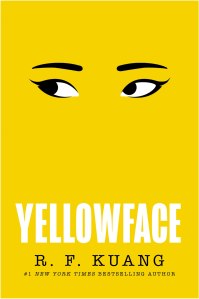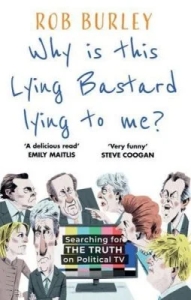June 17, 2023 · 12:05 pm
Romantic Comedy by Curtis Sittenfeld is one of my most anticipated books of 2023. Sally is a comedy writer for the late-night sketch show The Night Owls – a fictionalised version of Saturday Night Live – where she meets Noah Brewster, a pop star since the early 2000s who is appearing as a guest host. Expecting to work with a vapid and self-absorbed celebrity, Sally is pleasantly surprised when they hit it off while writing sketches. Her awkward lack of self-confidence prevents romantic developments, until they reconnect through email correspondence during the COVID-19 pandemic. The atmosphere of the male-dominated writers’ room is convincingly depicted and Sally is a refreshingly well-written female lead character who isn’t defined by her feelings about having children. Sittenfeld uses some of the traditional tropes of the romantic comedy genre, particularly around conflict, while quietly reversing others. Rather than being in competition with a rival, the only real obstacle is Sally’s low self-esteem. This is easily one of the most enjoyable books I have read this year.

 In Yellowface by Rebecca F. Kuang, struggling author June Hayward has been friends with darling of the literary world, Athena Liu, since college. When Athena dies suddenly, June takes the typewritten manuscript of Athena’s draft novel ‘The Last Front’ about the Chinese Labor Corps during the First World War and publishes it under her own name, rebranding as Juniper Song. However, her attempts to justify the theft soon start to spiral out of control. It’s easy to see why ‘Yellowface’ has become one of the buzziest novels of the year. Kuang’s contemporary satire of how the publishing industry, social media, cultural appropriation and cancel culture intersect has some incredibly over-the-top twists but is nevertheless hugely enjoyable and sharply written, with June’s unreliable first-person perspective adding further layers of complexity. Aged 26, Kuang’s previous books include a fantasy trilogy and the dark academia novel ‘Babel’. Intriguingly, she has said in interviews that she never wants to write a project in the same genre twice, so her career path will definitely be one to watch. Many thanks to Harper Collins UK for sending me a review copy via NetGalley.
In Yellowface by Rebecca F. Kuang, struggling author June Hayward has been friends with darling of the literary world, Athena Liu, since college. When Athena dies suddenly, June takes the typewritten manuscript of Athena’s draft novel ‘The Last Front’ about the Chinese Labor Corps during the First World War and publishes it under her own name, rebranding as Juniper Song. However, her attempts to justify the theft soon start to spiral out of control. It’s easy to see why ‘Yellowface’ has become one of the buzziest novels of the year. Kuang’s contemporary satire of how the publishing industry, social media, cultural appropriation and cancel culture intersect has some incredibly over-the-top twists but is nevertheless hugely enjoyable and sharply written, with June’s unreliable first-person perspective adding further layers of complexity. Aged 26, Kuang’s previous books include a fantasy trilogy and the dark academia novel ‘Babel’. Intriguingly, she has said in interviews that she never wants to write a project in the same genre twice, so her career path will definitely be one to watch. Many thanks to Harper Collins UK for sending me a review copy via NetGalley.
 Another of my other most anticipated books of 2023 is Why Is This Lying Bastard Lying To Me by Rob Burley, partly thanks to its eye-catching title as well as the content about how long-form political television interviews are made behind-the-scenes and the impact they can have on the public perception of those in power. As well as British politicians from Margaret Thatcher to Liz Truss, Burley looks at the different strengths and styles of presenters he has worked with over his 25 year career in the media including Andrew Marr and Jeremy Paxman, who is believed to have posed the pertinent question in the book’s title. Burley argues convincingly in favour of the television interview as one of the most effective means of holding politicians to account. They are high-stakes with nowhere to hide, and it doesn’t take a genius to work out why Boris Johnson wouldn’t commit to an interview with Andrew Neil in the run-up to the 2019 general election. This is an entertaining look at how modern British politics operates in the media.
Another of my other most anticipated books of 2023 is Why Is This Lying Bastard Lying To Me by Rob Burley, partly thanks to its eye-catching title as well as the content about how long-form political television interviews are made behind-the-scenes and the impact they can have on the public perception of those in power. As well as British politicians from Margaret Thatcher to Liz Truss, Burley looks at the different strengths and styles of presenters he has worked with over his 25 year career in the media including Andrew Marr and Jeremy Paxman, who is believed to have posed the pertinent question in the book’s title. Burley argues convincingly in favour of the television interview as one of the most effective means of holding politicians to account. They are high-stakes with nowhere to hide, and it doesn’t take a genius to work out why Boris Johnson wouldn’t commit to an interview with Andrew Neil in the run-up to the 2019 general election. This is an entertaining look at how modern British politics operates in the media.
Filed under Books






